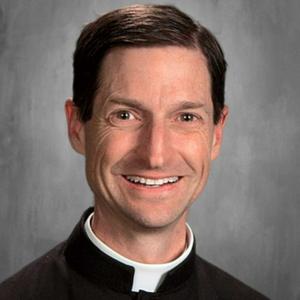Holiness and the Reverence of the TLM, Sermon by Fr. Paul Robinson, SSPX
Today, we have one of the vocation stories in the Gospels. These are some of the most beautiful stories we read about in the Gospels, and we find them in all four Gospels.They all consist in three things: a meeting, an invitation, and a following.These stories are beautiful and powerful for us because they are a representation of our own life.Of course, they are particularly a representation of the life of a priest, a monk or a nun, those people who have given their lives for the service of Our Lord Jesus Christ.But they are also a representation of the lives of the Catholic faithful. All of the faithful are called by Our Lord to be holy, to follow Him, to love Him and serve Him in their lives.The vocation story in today’s Gospel helps us understand what we need to do to answer the call of Our Lord. It is interesting that Our Lord was not content with preaching from the boats of these fishermen whom He was going to turn into fishers of men.He could have just stopped preaching and said, “Come, follow Me”. But, instead, He wanted to work a miracle before issuing the call. Why did He do this?Because great reverence is needed to follow the call of Our Lord. It is not enough that we see Him as a great preacher; we have to see Him as God.Our Lord works this miracle of a great catch of fish, so great that there are more fish than can be contained in one boat. Both boats were even sinking when they were filled with the fish. When St. Peter sees this, he has an immediate realization: this man is holy. I don’t think St. Peter knew yet that Our Lord was God. But he knew that He was holy: only a holy man could work such a miracle.When St. Peter sees the miracle, a great reverence for Our Lord awakens in his heart. He casts himself on his knees, in an attitude of respect, submission, and petition. He realizes how sinful he is in comparison to Our Lord and tells Our Lord that he is not worthy to be in His presence.But, in fact, the truth is the contrary: the reverence of St. Peter for Our Lord is what is going to enable him to answer the call of Our Lord and fulfill his great vocation of being the first Pope.The same is true with answering the call to holiness. Our Lord calls all of us to a greater union with Him. It is reverence that will enable us to answer that call. Reverence will make us want to pray, will make us fervent in our prayer, will make us fear sin and keep a close watch over ourselves.Reverence is often what leads Catholics to traditional Catholicism. They start to realize the respect that is owed to God, that that respect is not given in the New Mass, and that the TLM treats God with the respect that He deserves.


